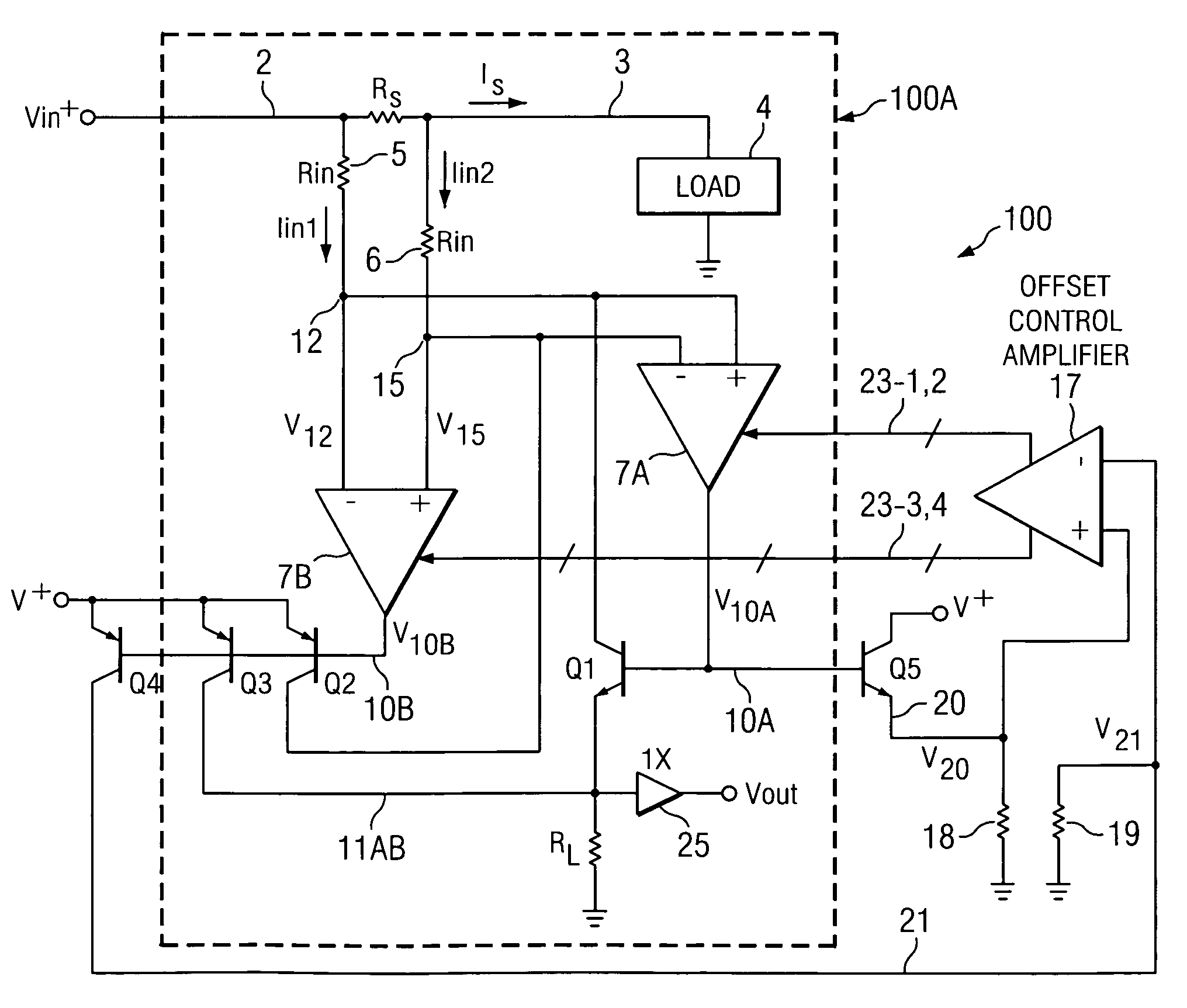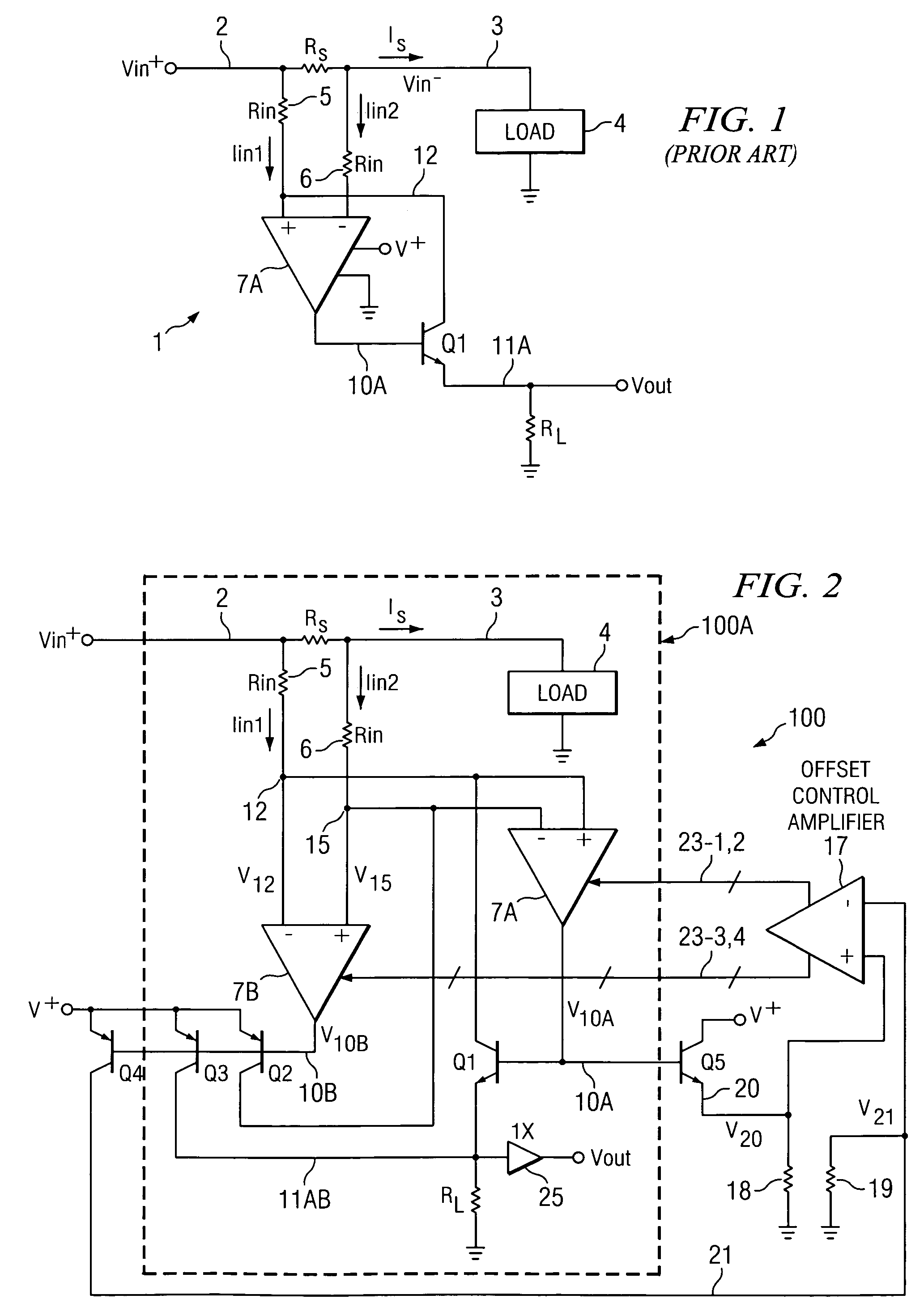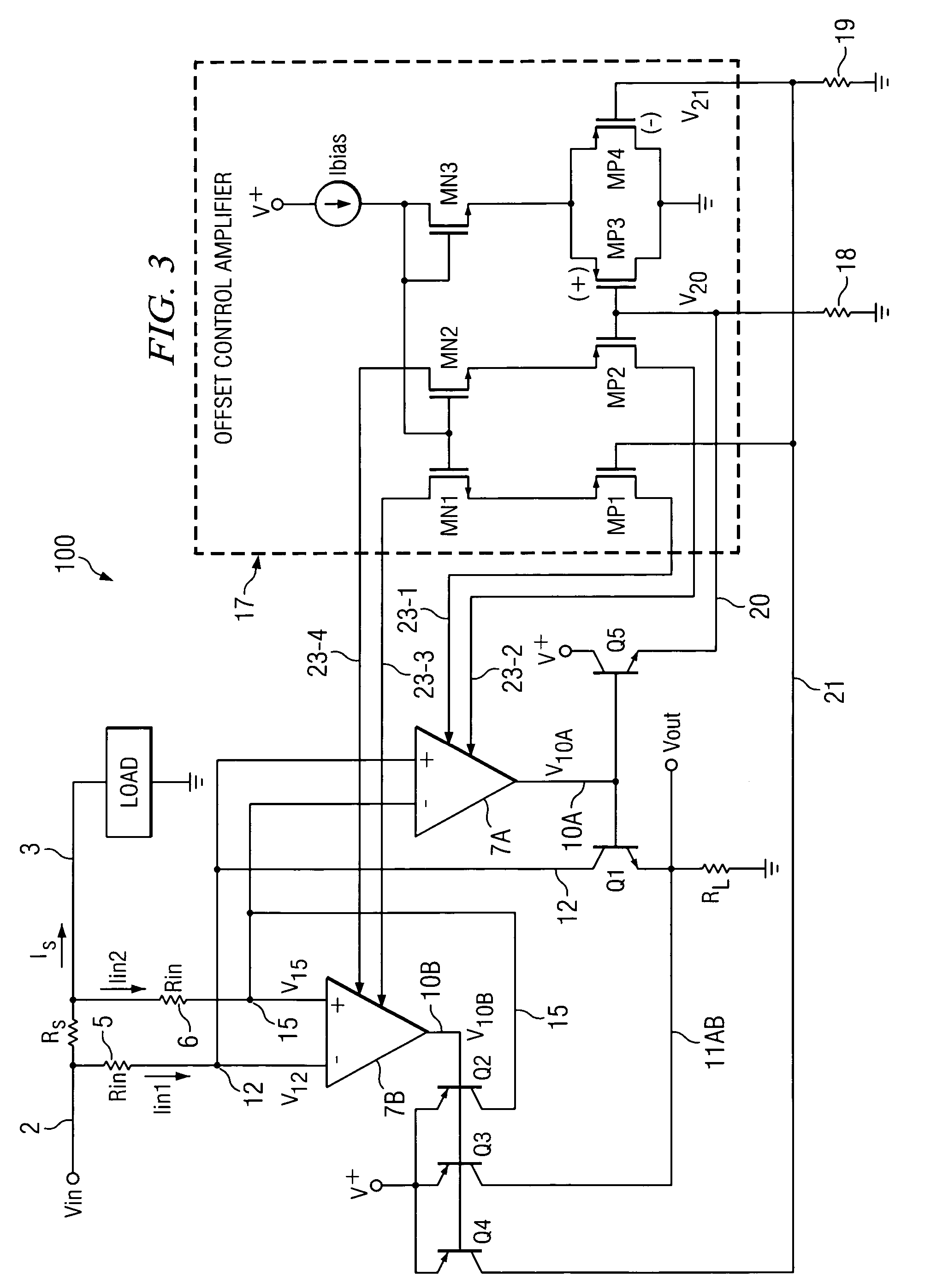Amplifier switching control circuit and method for current shunt instrumentation amplifier having extended position and negative input common mode range
a technology of amplifier switching control and amplifier, which is applied in the direction of amplifier details, differential amplifiers, amplifiers with semiconductor devices/discharge tubes, etc., can solve the problems of undesirable “glitches” of positive common mode voltage instrumentation amplifiers
- Summary
- Abstract
- Description
- Claims
- Application Information
AI Technical Summary
Benefits of technology
Problems solved by technology
Method used
Image
Examples
Embodiment Construction
[0025]Referring to FIG. 2, instrumentation amplifier 100 includes the same structure shown in prior art FIG. 1, with operational amplifier 7A having its (−) input connected to conductor 15 and its (+) input connected to conductor 12. As in FIG. 1, conductor 12 is coupled to one terminal of precision input resistor 5, which may, for example, have a resistance Rin equal to 5 kilohms. The other terminal of resistor 5 is coupled by conductor 2 to receive input voltage Vin+ and also is connected to one terminal of sense resistor RS, the other terminal of which is connected by conductor 3 to one terminal of external load 4, the other terminal of which is connected to ground. Sense resistor RS has a very low resistance, typically 10 milliohms, and current IS flows through sense resistor RS into load 4 in response to a positive value of Vin+. The current IS develops a small sense voltage across sense resistor RS. Conductor 3 is connected to one terminal of precision input resistor 6, which ...
PUM
 Login to View More
Login to View More Abstract
Description
Claims
Application Information
 Login to View More
Login to View More - R&D
- Intellectual Property
- Life Sciences
- Materials
- Tech Scout
- Unparalleled Data Quality
- Higher Quality Content
- 60% Fewer Hallucinations
Browse by: Latest US Patents, China's latest patents, Technical Efficacy Thesaurus, Application Domain, Technology Topic, Popular Technical Reports.
© 2025 PatSnap. All rights reserved.Legal|Privacy policy|Modern Slavery Act Transparency Statement|Sitemap|About US| Contact US: help@patsnap.com



